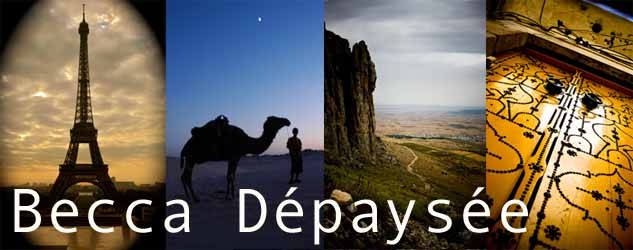 If I ever become a professor I vow to:
If I ever become a professor I vow to:1) Not be afraid to admit that I may be wrong
2) Be open to other views that aren't my own
Literature as I see it is pretty subjective. That's the value of the form. One inspired person writes a book, a million others read it; each is free (and encouraged!) to form their own interpretation, which are, in turn, shared, debated, and even published to ultimately further the artistic and intellectual exchange.
The wall I keep butting my head into as a lit student in France is that the French approach literature with the same assumptions that they bring to everything: that there is a "right" and a "wrong" way to do things, that there are "good" novels, and then, well, everything else . The positive side of this is that the French hold their literary heroes in very high esteem that they pass onto their children, and anyone with a basic high school education can extoll the virtues of Balzac, Flaubert or Molière in a reasonably intelligent and informed manner. The bad news is that their self-adoration is blind--any master inducted into the French cannon is automatically right, or good, and there is a sole, right way to approach their work.
The implications of this for me is that my courses here are heavy on lecture and not overly open to interpretation. I miss my literature courses in the U.S., where I was allowed to dislike works as long as I could defend my position with something substantive, where holding an opinion that differed from the professor's perspective was an invitation to discussion and possible movement on both sides. I really started to let my intellectual claws out during a guest lecture today--not because I disagreed with the lecturer, per se, but because her stuck-up, Sorbonne attitude didn't permit any sort of challenge to her own interpretation, regardless of textual evidence. There was a really terse half hour at the end of our workshop, and it was only because I made the conscious and difficult decision to bite my tongue that it didn't erupt into a full-blown argument.
I'm trying to value this insight into to the French way of thinking and learn to read like a Frog. After all, as frustrating as no-flexibility is there might be something to said for the traditional approach. I'll be the first to admit that American liberal arts, while fun, can veer towards pointless academic masturbation occasionally. And if my medieval literature course is any judge, there's still hope for the French. Although the gender-riffic observations in my reading journal for that class attracted the attention of my professor ("oh my, you really did find a lot of sexual undertones, didn't you? Is 'lesbianism' a word?") to her credit, she didn't mark me down, and even admitted that my interpretations had at least made her think about things differently, even if she didn't necessarily agree.
If I ever do get to be a professor, you can be sure that I'll be pro-discussion and pro-creativity, no matter what country I'm in. It will also be nice to finally have that respect that comes with the PhD, so that when a small-minded lecturer says something I disagree with, my "actually..." will command a little more respect.

I definitely noticed this in the Baudelaire class I took. I didn't do much speaking up in the class, but when it came to writing the final paper I was the recipient of some aggressive score slashing for a) choosing one of his least known/praised poems as my champion piece, b) pulling out meanings besides just good/evil, truth/untruth, etc., and c) failing to emulate the crazy structure map my prof inflicted upon formal lit papers. It made me miss the liberal-arts style praise of originality almost as much as our self-esteem-promoting "friendly" grading tendencies.
ReplyDelete